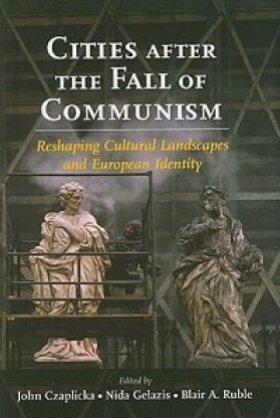Cities after the Fall of Communism: Reshaping Cultural Landscapes and European Identity

-
Cities after the Fall of Communism traces the cultural reorientation of East European cities since 1989. Analyzing the architecture, commemorative practices, and urban planning of cities such as Lviv, Vilnius, and Odessa, the contributors to this volume demonstrate how history may be selectively re-imagined in light of present political and cultural realities. These essays show that while East European cities gravitate nostalgically toward Habsburg, Baltic, Imperial Russian, and Germanic pasts, they are also embracing new urban identities grounded in ethnic-national, European, Western, and global contexts. Ultimately, the editors argue that one can see a “New Europe” taking shape in these cities, where a strained discourse between different versions of the past and variously envisioned futures is being set in stone, steel, and glass.
John J. Czaplicka is an affiliate at the Center for European Studies at Harvard University and co-chair of the European Cities Study Group, and coeditor of Composing Urban History and the Constitution of Civic Identities, also published by Johns Hopkins. Nida Gelazis is program associate and editor for the East European Studies program at the Woodrow Wilson Center. Blair A. Ruble is director of the Center’s Comparative Urban Studies Project as well as its Kennan Institute and coeditor, with Czaplicka, of Composing Urban History and the Constitution of Civic Identities.
Editors
 Nida GelazisFormer Senior Associate
Nida GelazisFormer Senior Associate Blair A. RubleDistinguished Fellow;Schedule interview
Blair A. RubleDistinguished Fellow;Schedule interview
Former Wilson Center Vice President for Programs (2014-2017); Director of the Comparative Urban Studies Program/Urban Sustainability Laboratory (1992-2017); Director of the Kennan Institute for Advanced Russian Studies (1989-2012) and Director of the Program on Global Sustainability and Resilience (2012-2014)Browse Insights & AnalysisExplore More
Browse Insights & Analysis
Logics of War in the Era of Reform and Opening
Posted date/time:
The Bureaucratic Factor in PRC Ethnic Policy: Lessons from the 1950s
Posted date/time:

